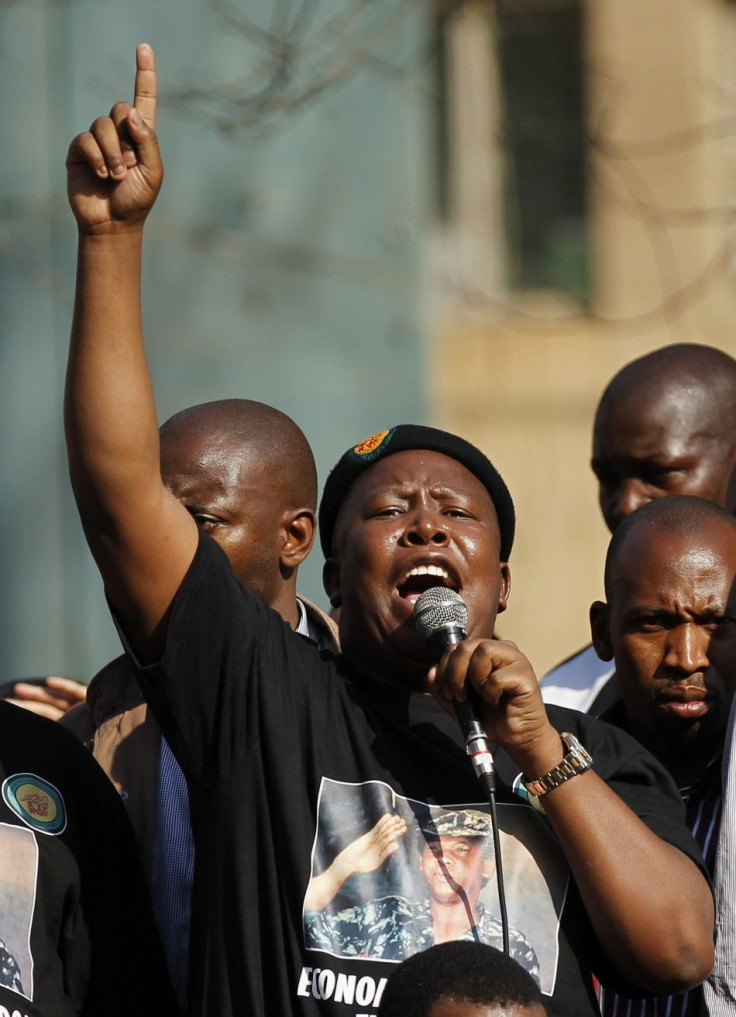Julius Malema: South Africa's Malcolm X
ANALYSIS

Julius Malema, a South African politician who has been listed as a candidate for the future president of the country, is a complex, vitriolic leader.
As polarizing as Malcolm X, the African-American activist of the Civil Rights movement who was criticized in his time for his black supremacist polemic, Malema is considered by some to be the spokesperson for racial tension in South Africa.
On Monday, Malema was found guilty of hate speech for singing the song Dubul’ iBhunu and for chanting the lyrics shoot the Boer. Boer is a derogatory term for South Africa's Afrikaans, the white descendents of Dutch settlers, and Malema used the words to foment support at a rally of his followers.
The song Dubul’ iBhunu is seen by some as a rally cry for the killing white farmers, an estimated 3,000 of whom have died since 1994, according to AfriForum.
Soldiers in battle don’t treat the enemy as individuals, but as a thing,” Malema said of his comments.
Malema is the head of African National Congress' Youth League. The A.N.C. was born was an anti-apartheid movement, notably headed at one point by Nelson Mandela. A.N.C. activists were responsible for abolishing the institutionally racist system of apartheid in 1994, and as a political party, the A.N.C. has held power since Mandela was first elected president.
Through his A.N.C. connection and his loud demonization of South African whites, Malema has garnered a large following, primarily from impoverished blacks. Although apartheid is gone, South Africa still struggles with racial and economic tensions, a fact which Malema has been able to use.
You can feel the racial divide every second of every day, said Jason Musselman, an American who runs a photography program for AIDS orphans outside of Cape Town. Everyone talks about it openly. There is still economic apartheid in the Cape Town area and it's almost impossible for people to climb out.
Yet, although Malema claims to speak for the poor, he has been living a luxurious life in South Africa, a fact which has brought his detractors much delight.
In July, it was alleged that Malema had a slush fund set aside for bribes, according to The Telegraph. Additionally, he is said to be building a 16 million rand ($2.2 million) mansion in the wealthy Johannesburg suburb of Sandton.
Sandton has been called Africa's richest square mile and is home to a large population of rich whites. It is also next door to the Alexandria township, an extremely poor community home to at least 20,000 shanties.
Malema's black power speeches are galvanizing a segment of the South African population that strongly needs unification, but in South Africa, where racial tension may not dissipate for decades, he is doing his country more harm than good. Even if the A.N.C. disagrees with the hate speech ruling, it would do well to listen to the words of Johannesburg High Court's Judge Colin Lamont
People must develop new customs and rejoice in a developing society by giving up old practices which are hurtful to members who live in that society with them,” Judge Lamont said in the trial.
The enemy has become the friend, the brother. This new approach to each other must be fostered.
© Copyright IBTimes 2025. All rights reserved.





















